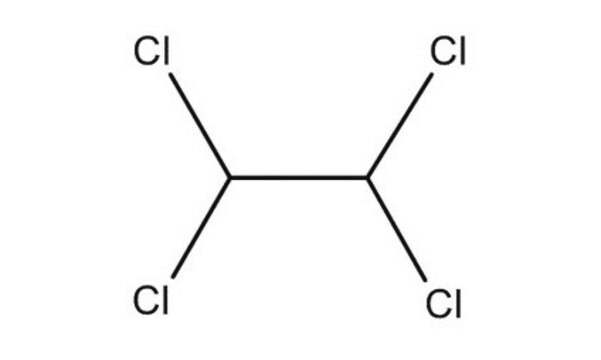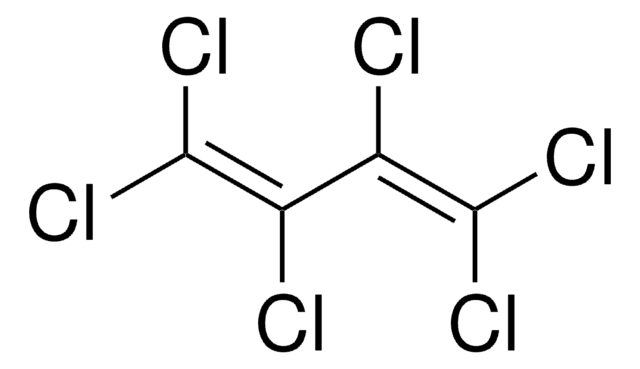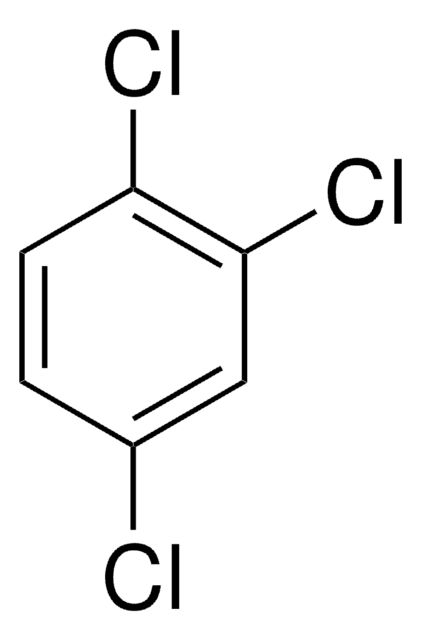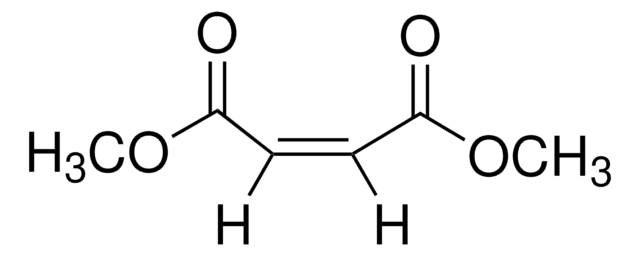Select a Size
All Photos(1)
Select a Size
Change View
About This Item
Linear Formula:
ClCH2CCl3
CAS Number:
Molecular Weight:
167.85
Beilstein/REAXYS Number:
1733216
EC Number:
MDL number:
UNSPSC Code:
12352101
PubChem Substance ID:
NACRES:
NA.04
assay:
99%
bp:
138 °C (lit.)
vapor pressure:
12.0 mmHg
Recommended Products
vapor pressure
12.0 mmHg
Quality Level
product line
ReagentPlus®
assay
99%
form
liquid
dilution
(for general lab use)
refractive index
n20/D 1.481 (lit.)
bp
138 °C (lit.)
mp
-70.2 °C
density
1.598 g/mL at 25 °C (lit.)
Looking for similar products? Visit Product Comparison Guide
Legal Information
ReagentPlus is a registered trademark of Merck KGaA, Darmstadt, Germany
signalword
Danger
Hazard Classifications
Acute Tox. 4 Inhalation - Acute Tox. 4 Oral - Aquatic Chronic 3 - Carc. 2 - Eye Dam. 1
Storage Class
6.1C - Combustible acute toxic Cat.3 / toxic compounds or compounds which causing chronic effects
wgk_germany
WGK 2
flash_point_f
Not applicable
flash_point_c
Not applicable
Choose from one of the most recent versions:
Already Own This Product?
Find documentation for the products that you have recently purchased in the Document Library.
Customers Also Viewed
L O Svaasand et al.
Lasers in surgery and medicine, 32(2), 137-142 (2003-02-01)
Cryogen spray cooling (CSC) is used extensively for epidermal protection during laser-induced photothermolysis of port wine stains and other vascular skin lesions. The efficacy of CSC depends critically on the heat transfer coefficient (H) at the skin surface for which
D L Story et al.
Toxicology and industrial health, 2(4), 351-362 (1986-12-01)
Nine chlorinated aliphatics (CAs)--1,1-dichloroethane, 1,2-dichloroethane, 1,1,1-trichloroethane, 1,1,2-trichloroethane, trichloroethylene, tetrachloroethylene, 1,1,1,2-tetrachloroethane, 1,1,2,2-tetrachloroethane, and hexachloroethane--were examined in a rat liver foci assay for evidence of initiating and promoting potential. Young adult male Osborne-Mendel rats (ten/group) were given partial hepatectomies, followed 24 hr
M Paolini et al.
Mutagenesis, 5(1), 51-54 (1990-01-01)
The synergistic effect of NADPH and NADH on P450 functions upon pre-mutagens requiring metabolism during the incubation conditions used in the liver microsomal assay (LMA) was studied. The mean specific activity (Asp) during 1 h of pre-incubation (LMA) of some
Reductive metabolism of 1,1,1,2-tetrachloroethane and related chloroethanes by rat liver microsomes.
J A Thompson et al.
Chemico-biological interactions, 51(3), 321-333 (1984-10-01)
The susceptibility of polychlorinated ethanes to reductive metabolism was evaluated by measuring the amount of each compound consumed during anaerobic incubations with rat live microsomes; 1,1,1,2-tetrachloroethane, pentachloroethane and hexachloroethane were metabolized extensively, 1,1,1,2-tetrachloroethane and the trichloroethanes were metabolized very slowly
Yang Xie et al.
Environmental science & technology, 44(22), 8649-8655 (2010-10-26)
Nanoscale zero-valent iron (NZVI) represents a promising approach for source zone control, but concerns over its reactive lifetime might limit application. Here, we demonstrate that dithionite (S₂O₄²⁻), a reducing agent for in situ redox manipulation, can restore the reducing capacity
Our team of scientists has experience in all areas of research including Life Science, Material Science, Chemical Synthesis, Chromatography, Analytical and many others.
Contact Technical Service










